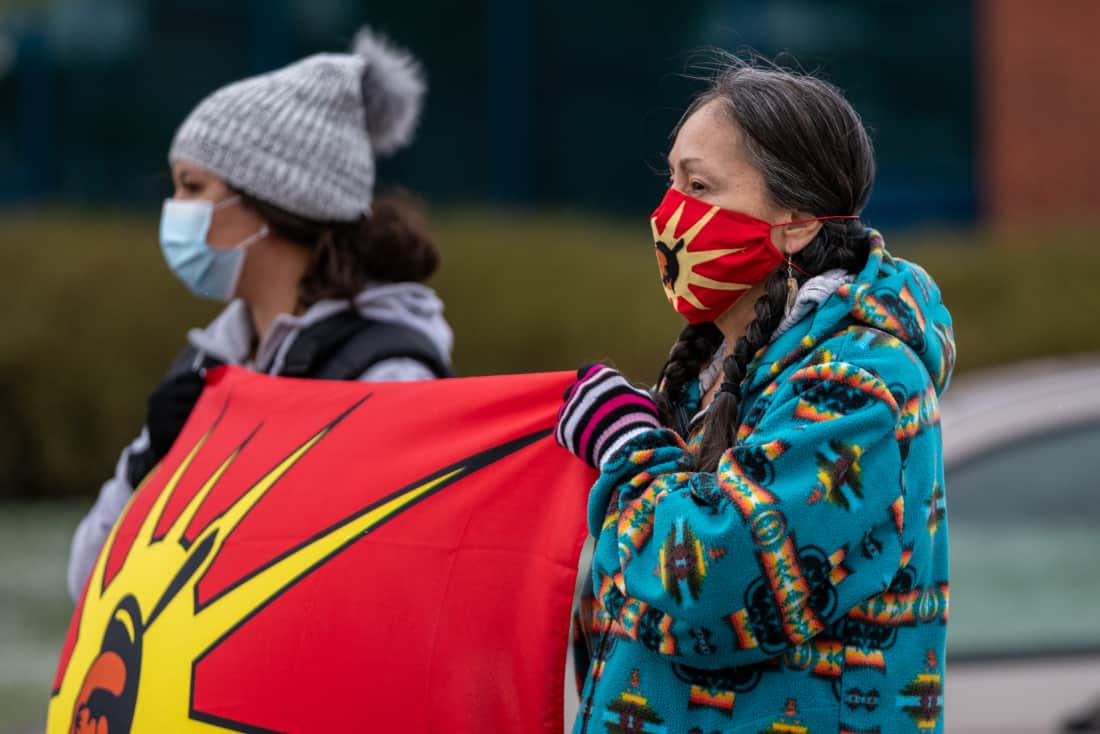
When the Mi’kmaq lobster dispute began surfacing in the news, the first image I saw was not something I could forget — masses of lobsters rotting on the ground among a backdrop of overturned bins and crates.
It is, to say the least, very frustrating to see the individuals who carried out these harmful actions justify themselves by doing everything they can to criticize the actions of the Mi’kmaq.
To understand this lobster dispute, it is crucial to take a look at the history behind the issue.
The roots of the dispute span hundreds of years, starting in 1760 and 1761 with the Peace and Friendship Treaties between the Mi’kmaq Nation and Nova Scotia authorities. These treaties outlined promises with the Mi’kmaq and stated their trading rules.
The ruling at the centre of the current issue is a Sept. 17, 1999 Supreme Court ruling that affirmed Mi’kmaq fishers’ treaty right under the Peace and Friendship Treaties to “hunt, fish and gather in pursuit of a ‘moderate livelihood.”
The term moderate livelihood is at the heart of the issue — the unclear definition has cultivated confusion that has now escalated to violence.
The court defines a moderate livelihood as “food, clothing and housing, supplemented by a few amenities” and excludes the “open-ended accumulation of wealth.”
Two months after this ruling, the Supreme Court clarified that Indigenous fisheries could possibly be regulated, and that the potential regulations must be justified with conservation efforts and other public objectives.
Now, the situation has reached a boiling point. As non-Indigenous commercial fishermen protest harvesting lobsters outside the regular fishing season, the Mi’kmaq are standing up for their treaty rights by taking action to protect their fisheries.
This situation is clearly complex and I don’t think there is one single solution for it, but the violence, fires and damage that has happened over the past few weeks reveals a deep flaw in the arguments that mobs have been using to justify their decisions to attack Indigenous fisheries.
They defend their actions on the premise that Indigenous fisheries pose a threat to conservation efforts and therefore to the non-Indigenous fisher’s businesses. But however serious the situation may be, the current acts of violence are not providing any solutions. If anything, setting fires and dumping more than 3,000 pounds of live lobsters does more harm to both conservation efforts and the commercial fishers’ businesses than gain sympathy for their points. It also does little to explain their concerns to the Mi’kmaq or the larger Canadian community.
The ineffectiveness of the violent actions is proven by the recent uptick in restaurants and businesses across Canada boycotting lobsters and other seafood from Nova Scotia fisheries, instead choosing to support the Indigenous fisheries that were attacked.
When we dive deeper into the fishers’ arguments they don’t seem to make very much sense either. While the local commercial fishing vessels use around 35,000 traps, Sipekne’katik vessels use only around 500 traps. There is no evidence that Indigenous fisheries operating outside of the regular season is breaching conservation efforts.
Although Canadian officials — the Prime Minister himself included — have stated their disapproval, it is evident that there is much to be done to solve the decades-long issue.
Perhaps the most frustrating part of this situation is the lack of solid evidence for the non-Indigenous fishers’ stance.
Working through things strategically and finding a way to collectively solve the problem are substantially more effective than the attacks that have sparked a fire in a topic already rife with tension.
I am no expert on legislation mandated to support Indigenous fisheries and policies regarding conservation efforts, but the damage that non-Indigenous fishers have done with their attacks reveals the relentless discrimination that exists within our society — and this prejudice is not a surprise.
While I can’t get that image of lobsters scattered across the ground out of my head, I know that this issue has real implications for Nova Scotia fishers, their families and the Mi’kmaq people. We must address the violent attacks, but remember that it is only the tip of the iceberg in a controversy that runs deeper than most of us know.
—
Fiza Baloch | Staff Writer
Photo: Heywood Yu
Leave a Reply